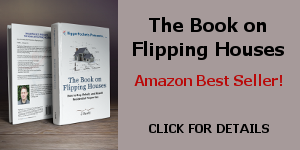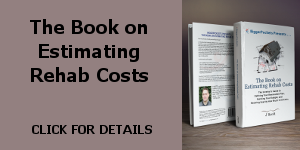What Controls Mortgage Rates
In a long ago blog post, I mentioned that all my home purchase paperwork had been completed, and that I was just sitting back waiting for the various other parties (my agent, mortgage broker, inspector, appraiser, etc) to get back to me…
Well, the first person to get back to me was my mortgage broker. My application had been submitted, and he was ready to lock in a rate anytime I wanted. I had read a little about this previously, so I knew that once my loan application had been submitted, I had the option to lock in my mortgage loan rate at any point between then and a few days before I closed on the house (until I “locked in” the rate, it would be considered “floating”). Locking in the rate would mean that I would set the loan rate to whatever it was at the time I locked it in; if rates rose in the following weeks before closing, I would save some money. If rates dropped over the subsequent weeks, I’d lose out (once rates are locked, they can’t be changed).
I had to decide if I wanted to lock in the rate that first day, or if I wanted to let it float for a while, hoping it would go down, and ultimately driving my mortgage payments down. I knew that the day after my broker called me that the Fed was meeting, and would likely drop interest rates between 3/4 of a point and a full point. Assuming this would push mortgage rates down, I decided to let my rate float for at least another day, and told my broker that I’d call him when I was ready to lock in the rate. Little did I expect that the next day, as soon as the Fed dropped interest rates by 3/4 of a point, mortgage rates rose 1/4 of a point!
Whoa…it was time to do some research to understand why mortgage rates weren’t being controlled by interest rates, and what exactly was controlling mortgage rates…
Apparently, mortgage rates aren’t controlled by the Fed. All the things that I thought might control mortgage rates (10-Year Treasury Note rates, the Federal Funds Rate, the Discount Rate, etc) actually have no impact on mortgage rates. Mortgage rates are specifically correlated to mortgage backed securities (MBS), which are — for the most part — 30-year bonds. As the price of MBS bonds rise, interest rates go down; as MBS bonds go down, interest rates go up.
What I had seen on that day when the Feds lowered the Federal Funds Rate was that this rate cut had spurred the stock market, encouraging investors to pull money out of bonds (including MBS bonds), and thereby driving mortgage rates up. While it’s not necessarily true that interest rates are inversely proportional to mortgage rates, in this case, there was a very short-term inverse correlation; and that correlation had cost me 1/4 point on my mortgage loan rate!
After mentioning this to my best friend (who owns a couple investment properties), he pointed me to this website that provides daily market analysis of mortgage rates, including recommendations on whether to lock in your rates or let them float, depending on how far out your closing is.
While my lack of research had cost me 1/4 point, based on the new information I had, I called my mortgage broker the next day and locked in my rate at 6.125%.




Thanks J. for the great info.
Do you tend to go for a 30 year mortgage rate or do you do a 15 year mortgage rate if you are planning to just flip the property?
D. Johnson,
If you’re getting a loan on a flip property, you won’t be able to use a regular loan (most likely). Instead, you’ll either have to get a rehab/construction loan, a private loan or a hard money loan. Each of these are going to tend to be interest-only loans with 6-12 month terms.